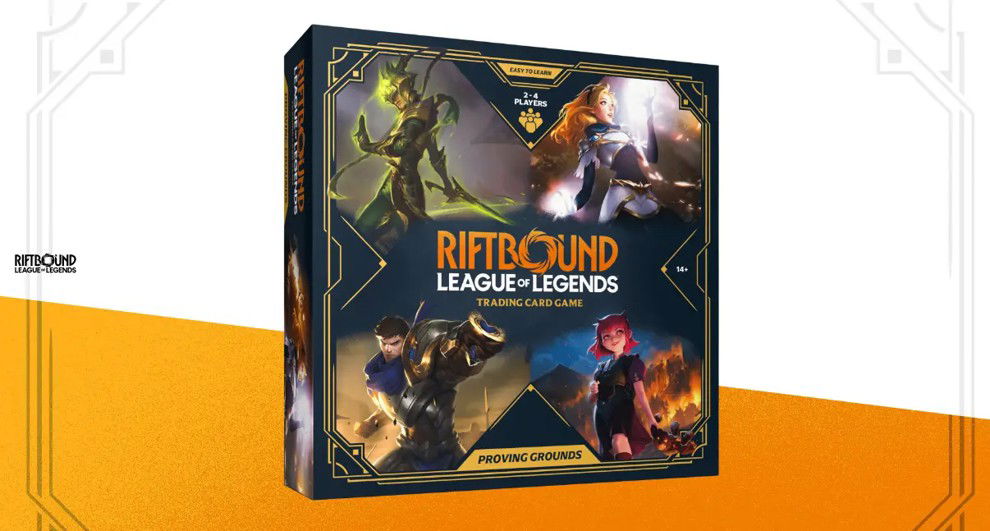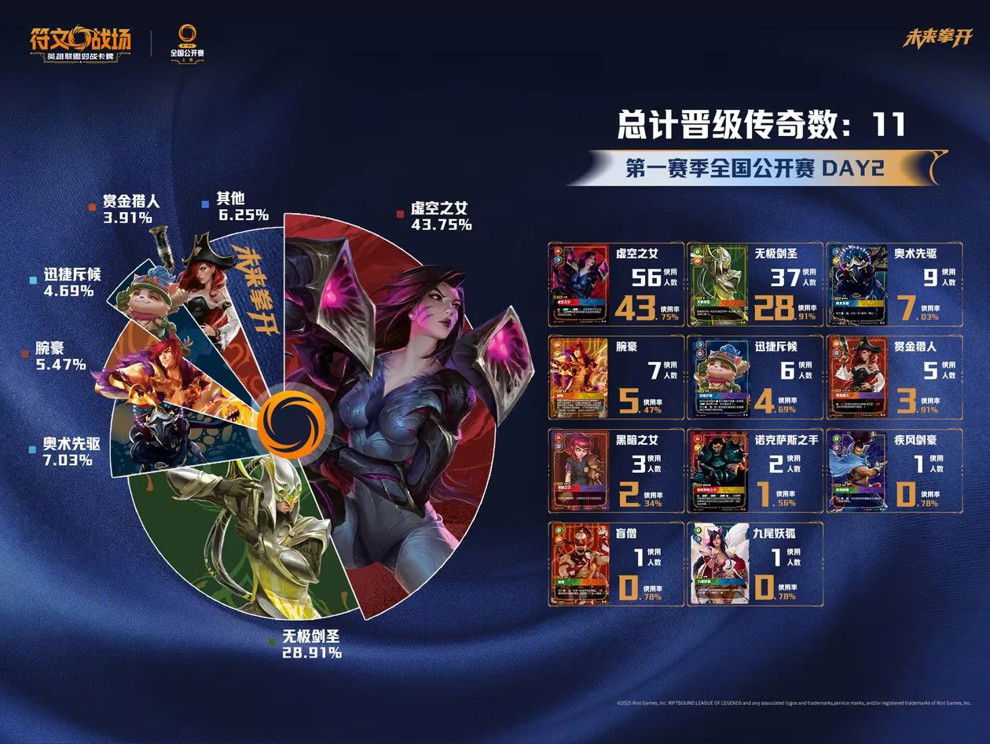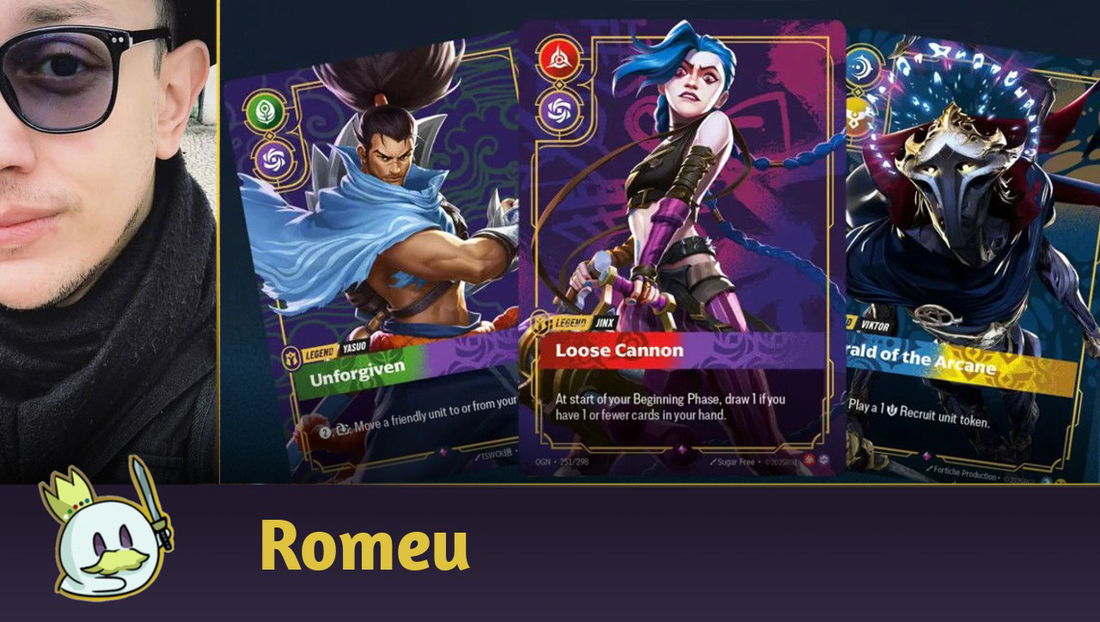At the time this article goes live, the official launch of Riftbound, the card game based on the League of Legends universe, is taking place in Brazil.
It was expected that a title of this magnitude would arrive on the market and take it by a huge sweep. After all, Riftbound carries the brand of one of the most influential games in the world and was surrounded by growing interest, fueled by the search for a TCG that combined good gameplay, visual appeal, and security for those who intend to invest in decks, compete, and even dream of a world stage—something that is part of the imagination of practically every card game player.
With a suggested retail price below traditional competitors and a format that integrates solo and multiplayer competitive modes from day one, many were betting on it being one of the most remarkable launches in recent years. There was fertile ground, both for the TCG community and for the League of Legends audience, which rarely receives affordable collectible products in Brazil.
Memorable, Riftbound is indeed—but for reasons that should have been avoided.
Riot and UVS Games underestimated the global demand for their own product, and the effects of this were felt in virtually every region: widespread delays, reduced quantities shipped to stores, broken and rescheduled release dates, and, in the case of Brazil, a launch that happened almost a month later than planned.
Added to this are logistical problems involving international preorders on Riot's website, which have not yet been delivered to many consumers, printing quality issues, irregular distribution of rarities in booster packs; and, as of the time of this writing, complete silence regarding new batches of Proving Grounds, the set of four ready-to-play decks that would serve as an ideal entry point for new players.
Proving Grounds is the main reason for this article.
The case of Riftbound in Brazil
Calling the Brazilian launch troubled is an understatement. The first signs that distribution would be problematic emerged when stores in the United States and Canada began reporting delays, incomplete shipments, and reduced orders on the eve of the national release.
In one of our videos, we pointed out the main risks:
- Low product availability for Brazil if it is considered a "secondary market," a possibility given the recent moves by other companies—such as Wizards of the Coast—regarding the country.
- Increased product prices based on speculation, scalping, and high demand with low supply, which could drive away card game consumers, as these prices are competing with other products in the segment, while also alienating League of Legends fans due to the free-to-play nature of the MOBA.

These alerts also addressed concerns about the regional landscape: the Brazilian League of Legends audience is gigantic and has shown a year-long need for collectible products licensed by Riot. For a considerable portion of them, Riftbound would be the chance to get their hands on something physical, collectible, and directly linked to the universe of the champions they've followed for over a decade. Combine this expectation with the natural appetite of the TCG community, and the scenario was clear: demand far above supply.
The first obstacle, however, arose before the game even hit stores: a Riftbound booster box went on pre-sale for around R$1,300, coming from the distributor — the equivalent of US$243 or €211. Aiming to have their own profit margins, stores passed on the product with average prices of R$ 1,600 for an Origins box, a value far exceeding what the community expected considering its suggested price abroad.
For comparison, Riftbound arrived in Brazil costing more than a Magic: The Gathering x Final Fantasy booster box at launch, a premium set and record-breaking seller in the franchise, despite its international MSRP being much lower: €127.99 (around US$147 or R$787), while the Final Fantasy box had an MSRP of US$210.
What has never been clear, by any party, is how a product with a considerably lower MSRP reached the Brazilian consumer at such a high price, comparable to the product that generated the most hype in the card game community that year. Retailers received no response from UVS Games regarding pricing, leaving buyers with the uncomfortable feeling of paying scalper prices even at official retailers.
There was no shortage of indignation, but complaints and insults in YouTube comments and on social media can only go as far. Coordinated public action, transparency from the distributor and manufacturer, and any concrete initiative to date to make Riftbound more accessible were lacking.
Meanwhile, the old logic of "instead"—very present among Brazilian card game consumers—returned to the table: if the cost of Riftbound is equal to or greater than that of an already established TCG, then what reason would a player have to trade security for uncertainty? And this applies to all aspects: the cost of singles, ease of deck building, competitive structure, and space in store calendars. In the end, Riftbound entered into direct competition with all other card games in the country and did so with the disadvantage of price and uncertainty.
For another comparison, Flesh and Blood, a card game from Legend Story Studios, arrived in Brazil in 2022 with more accessible prices, and despite the low availability of singles in its first year considerably inflating the costs of building a deck, the game succeeded in the country, captured loyal fans from various other TCGs, and today has one of the most fiercely devoted communities in consuming the product, participating in weekly events and major competitive tournaments in the country, and Brazil remains a force to be reckoned with and respected on the world stage — and none of this would have been possible if the game hadn't taken the right steps in its first three months in the country.
The Riftbound community, however, decided to give it a vote of faith. Groups grew, discussions intensified, and anticipation remained high until, three days before the official launch, the hardest blow came: Proving Grounds would not be available.

In an email sent to several stores, the official distributor informed them that many units of Proving Grounds would not be delivered due to a stock error. There was no detailed explanation, nor any indication of future measures to correct the situation at any point in the production and distribution chain.
Proving Grounds, it's worth remembering, was the ideal product to introduce Riftbound to the public: four balanced decks, ready to play, with excellent cost-benefit and designed precisely for beginners and playgroups. It was the kind of launch that drives community, events, and new sales, the ideal product to have in your store window as an invitation to “come play Riftbound!” — and it disappeared.
Stores that had already sold out their preorders, with only a few units available at the distributor, about four per retailer, were forced to inform customers that the product would not arrive and their orders were canceled, and the trust, which was already shaken, shattered: consumers lost the security of receiving their orders, retailers lost the ability to guarantee any predictability to the customer, and the narrative of “Riftbound may be the best card game of the year” transformed into “Riftbound is already dead in Brazil”.
If the intention was to celebrate Riftbound and the League of Legends universe in Brazil, Origins has already gone down in history as one of the most troublesome launches in the country, and the damage to the relationship between the community, stores, distributor, and brand, coupled with the frustration and anger of the consumer public, will bring severe difficulties in building and developing a healthy community in the next months.
It is a shame, from beginning to end.
How to solve this problem?
Saying "it was a shame" only goes so far. The reality is that the launch of Riftbound is a worldwide mess, and this even serves as one of the common justifications for "not giving up on the game yet" for a part of its audience — however, the case of Brazil is no less serious than that of any other country facing logistical problems, and it is up to us to assess what solutions can be adopted to mitigate the problem in the region.

Some, obviously, involve things that affect the entire global scale: scaling up production, clearer communication, and avoiding repeating the mistakes of Proving Grounds in future introductory products, but others require a focused look at the challenges of Latin America—greater regional support for accessibility and seeking new distribution partnerships in Brazil.
Significantly scaling up production
Riftbound debuted with an absurd level of expectation, and the combination of a traditional TCG audience and a gigantic League of Legends community created a demand that could not be ignored. The game was born big, perhaps bigger than any initial release, and demanding that this structure work with such a limited print run ignores the reality that existed months before launch, when the game was still called Project K.
Not enough material was produced: stores received few units of Origins, Proving Grounds practically didn't reach the country, and even with the recent statement from UVS/Riot promising adjustments to distribution—including Proving Grounds cards in Nexus Night packs and a gradual increase in production—the damage is still far from being reversed.
Given the circumstances that affect the game not only in Brazil but also in several other countries, it's necessary to restore trust: if Spiritforged, scheduled for February 2026, repeats the same mistakes, or if Origins remains a difficult product to find for the next few months, the public's perception will be that the game is unable to sustain its own growth and, therefore, prices will become even more inflated and accessibility will be hindered, an essential point for healthy long-term development.
Ideally, Origins needs an extended print run for a long time, with robust restocking. This is the only way to stabilize prices, normalize store access, strengthen the competitive scene, and give consumers the feeling that the game is evolving instead of sinking into a logistical mess.
Admit the mistake and do what it takes to make Proving Grounds an available and accessible product
Proving Grounds was created to be the gateway and should fulfill the role of introducing new players and serving as a bridge between the League of Legends audience and the traditional card game scene. By including champions and exclusive cards not found in any other product, the item ceased to be an onboarding tool and became a luxury, further complicated by the fact that Master Yi—currently one of the strongest decks in the competitive Metagame—is restricted to this item.

The scenario of low supply and high demand opened the door to scalping, abusive pricing, and competitive distortions that could have been avoided with a more balanced distribution structure. The official statement doesn't mention any new batch of Proving Grounds, and there's a possibility that the product is more expensive or takes longer to manufacture than a regular booster box and therefore might not have a second batch in the near future—or ever—and that cuts in its distribution would be inevitable; it just so happened that Brazil was in the pipeline.
At this point, it's necessary to admit the mistake and guarantee a new production of Proving Grounds, with real availability for all regions, to repair the relationship with the public. Furthermore, a promotional box should no longer carry essential Metagame content that is inaccessible through other means or products.
Give more emphasis to regional support
Brazil is one of the most vocal League of Legends audiences and an established consumer of card games. If the goal is to build Riftbound as a solid TCG with a presence in several countries, regional support needs to be treated as a fundamental part of long-term growth.
For Riftbound to have a long life in the country, it needs presence, communication, and attention to market particularities, with stricter monitoring of the suggested price, coupled with a clear distribution policy that would help prevent distortions and build a more balanced relationship between manufacturer, distributor, and consumer.
This starts with an accessible calendar, tournaments, and qualifiers, but also involves providing real conditions for the competitive scene to develop without depending on scarcity or luck. After all, there's no point in fostering the competitive scene if the player can't even afford to buy a deck.
Another critical point is understanding the specificities of each region. In Brazil, most complaints came from the price at which stores received the boxes, which made Riftbound an expensive item for a large part of the TCG community, unwilling to invest as much as in other games without the same reliability and established structure.
Find more distribution partnerships
Recent problems have driven away many players who were willing to invest in the game. Regaining that trust depends directly on Riot and UVS Games' ability to expand their range of partners and establish a delivery standard that meets the expectations created since the TCG's announcement.
Furthermore, the relationship between the Brazilian community and the distributor responsible for the game has become, at the very least, unstable: stores report difficulty in receiving clear information, the public sees no predictability, and the launch, which should have consolidated trust, ended up widening the gap between the company and the consumer.
The first step is to create a more solid production scale, but the next involves diversifying import and distribution channels. Working with only one company limits options and exposes the public to problems that shouldn't be part of the Riftbound experience when the product arrives with flaws, delays, and scalping prices.
These mistakes make the consumer lose the feeling that there is someone on the other side guaranteeing quality and undermine engagement with the product and related content from day one. When all anyone talks about on social media is that "the game is going to fail" or "they couldn't even deliver the preorders", the collective perception tends to worsen.
New partnerships open up space for more efficient processes to guarantee delivery and an environment where the market can adjust. When more than one company operates, there is also more responsibility and more competition, and, more importantly, the consumer ceases to be dependent on a single distribution structure that, at the moment, is not proving capable of fulfilling its part of the commercial contract with the stores.
Wrapping Up
The challenges, both for Brazil and for several other countries, remain significant, and the collective perception in the country, currently, is that the trend is likely to continue for a long time.
As mentioned in a previous article, Riftbound has between six months and a year to prove itself. If it fails within this timeframe, it will simply be another Riot cosmetic product that went wrong in the Western market, and the first step to start thinking about long-term success is to guarantee the product's availability around the world.
Origins failed; it's up to Spiritforged and Sets 3 and 4 not to fall into the same abyss — who knows, maybe then a player could look at it and feel drawn to the concept instead of being intimidated by the insecurity and uncertainty of getting the desired product with each new release.
While these expectations are unattainable, one can't think badly of anyone who says, "Call me when this game is able to guarantee boxes in stores and decks for players."












— تعليقات 0
, ردود الفعل 1
كن أول من يعلق